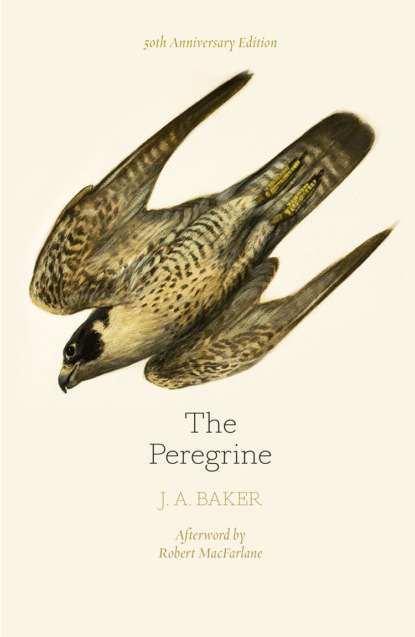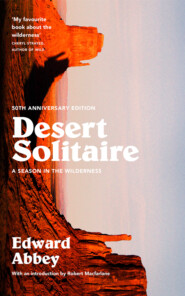По всем вопросам обращайтесь на: info@litportal.ru
(©) 2003-2024.
✖
The Peregrine: 50th Anniversary Edition: Afterword by Robert Macfarlane
Настройки чтения
Размер шрифта
Высота строк
Поля
The Peregrine: 50th Anniversary Edition: Afterword by Robert Macfarlane
Robert MacFarlane
Mark Cocker
John Fanshawe
J. A. Baker
Reissue of J. A. Baker’s extraordinary classic of British nature writing, with an exclusive new afterword by Robert Macfarlane.Despite the association of peregrines with the wild, outer reaches of the British Isles, The Peregrine is set on the flat marshes of the Essex coast, where J A Baker spent a long winter looking and writing about the visitors from the uplands – peregrines that spend the winter hunting the huge flocks of pigeons and waders that share the desolate landscape with them.Such luminaries as Ted Hughes and Andrew Motion have cited this as one of the most important books in 20th Century nature writing, and the bestselling nature writer Mark Cocker has provided an introduction on the importance of Baker and his work.Among fragments of letters to Baker was one from a reader who praised a piece that Baker had written in RSPB Birds magazine in 1971. Apart from a paper on peregrines which Baker wrote for the Essex Bird Report, this article – entitled On the Essex Coast – appears to be his only other published piece of writing, and, with the agreement of the RSPB, it has been included in this updated new paperback edition of Baker’s astounding work.
(#ua4f75a01-58a0-5f67-a363-db1ba1727e47)
Copyright (#ua4f75a01-58a0-5f67-a363-db1ba1727e47)
William Collins
An imprint of HarperCollinsPublishers
1 London Bridge Street
London SE1 9GF
WilliamCollinsBooks.com (http://www.WilliamCollinsBooks.com)
This eBook first published in Great Britain by William Collins in 2017
This edition first published in Great Britain by Collins in 2010
The Peregrine © J. A. Baker, 1967
‘On the Essex Coast’ © J. A. Baker, 1971. Published in RSPB Birds magazine 3(II) (Sept/Oct, 1971): 281–283
Introduction © Mark Cocker, 2010
Notes on J. A. Baker © John Fanshawe, 2011
Afterword © Robert Macfarlane, 2017
The 50th anniversary edition © HarperCollinsPublishers, 2017
Cover art: Peregrine Falcon, English School (20th century)/Private Collection © Look and Learn/Bridgeman Images
The authors assert their moral right to be identified as the authors of this work
A catalogue record for this book is available from the British Library
All rights reserved under International and Pan-American Copyright Conventions. By payment of the required fees, you have been granted the non-exclusive, non-transferable right to access and read the text of this e-book on-screen. No part of this text may be reproduced, transmitted, down-loaded, decompiled, reverse engineered, or stored in or introduced into any information storage and retrieval system, in any form or by any means, whether electronic or mechanical, now known or hereinafter invented, without the express written permission of HarperCollins.
Source ISBN: 9780008216214
Ebook Edition © April 2017 ISBN: 9780008253189
Version: 2017-03-30
Contents
Cover (#u5f20bd34-9a0e-5224-9528-d8ca01abeb81)
Title Page (#uc78ab3e0-fa17-59b6-9163-9b873dc67947)
Copyright (#uc146b0a0-81e1-5655-ad9b-0d65a360ae7d)
Introduction by Mark Cocker (#u743c9904-cde8-58ec-a134-110f3149ae77)
Notes on J. A. Baker by John Fanshawe (#u9938f9c2-1dfb-539d-b6cc-2eacb1bd13df)
THE PEREGRINE (#u8fc3ba96-5adc-51b5-9ce0-f2e3d36281a8)
Beginnings (#ulink_15fd1387-8132-5af4-b75b-589b6d775643)
Peregrines (#ulink_2b6d2f47-f333-5a3e-ba4b-5dcc93308b42)
The Hunting Life (#ulink_355e4763-39e6-5471-aaac-94552ac556b1)
Afterword by Robert Macfarlane (#litres_trial_promo)
ON THE ESSEX COAST (#litres_trial_promo)
Acknowledgements (#litres_trial_promo)
Contributors (#litres_trial_promo)
About the Publisher (#u5f20bd34-9a0e-5224-9528-d8ca01abeb81)
Introduction (#ua4f75a01-58a0-5f67-a363-db1ba1727e47)
by Mark Cocker
J.A. Baker (1926-1987) is now widely acknowledged as one of the most important British writers on nature in the twentieth century. When his first book, The Peregrine, appeared in 1967 with all the unexpected power and vertiginous daring of its eponymous bird, it was instantly recognised as a masterpiece. Today it is viewed by many as the gold standard for all nature writing and, in many ways, it transcends even this species of praise. A case could easily be made for its greatness by the standards of any literary genre.
It has been thirty years since his untimely death in 1987, aged just 61, and more than four decades since the publication of his last and only other work, The Hill of Summer (1969). For much of the intervening period, neither of the books has been in print. Yet, if anything, Baker’s stock stands higher today than at any time. His writing has been intimately associated with the resurgence of literature on nature and landscape, the so-called New Nature Writing of authors like Tim Dee and Robert Macfarlane (the latter, in fact, has played a key role in Baker’s rediscovery). His books are studied as set texts at university. Major modern poets, from Kathleen Jamie to the former laureate Andrew Motion, acknowledge Baker’s poetic genius. Commentators of various stamp, from the film maker David Cobham to the TV presenter and wildlife cameraman Simon King, hail his influence upon them.
All of this is a remarkable achievement, particularly in view of Baker’s personal circumstances. He was an Essex man born and bred, living all of his days in what was then the small rural town of Chelmsford, largely at two addresses – 20 Finchley Avenue and 28 Marlborough Road. His parents, Wilfred and Pansy, were what might be called lower middle class; his father a draughtsman with the engineering company Crompton Parkinson. The formal education of their only son at Chelmsford’s King Edward VI School ended in 1943, when he was just sixteen years old. His abiding love for poetry and opera were perhaps exceptional in one of his social background, but Baker junior seems to have had little or no contact with other writers and artists. His only literary connections flowed from Collins’ eventual decision to publish The Peregrine and The Hill of Summer.
It is, in many ways, confirmation of his extraordinary talent that the author’s reputation rests entirely on two works – 350 published pages of prose – and in spite of their extremely narrow geographical focus. They describe a roughly rectangular Essex patch of just 550km2, which includes the Chelmer Valley from the eastern edge of Chelmsford as far west as Maldon and the confluence of the Chelmer and Blackwater rivers. At its heart lies Danbury Hill, the highest ground in Essex, with its glorious ancient woodlands of coppiced hornbeam and sweet chestnut. Baker country then runs down Danbury’s far slope and on to the southern and northern shores of the Blackwater Estuary, there to be extinguished in the dark silts at the North Sea’s edge. Most of this countryside now lies within a commuter belt less than an hour from central London, yet in Baker’s day it was a deeply rural district. Residents of the beautiful village of Little Baddow recall how their doors were left unlocked at night until at least the 1970s. Between the dawn and dusk of a single winter’s day, Baker could traverse the whole area via a network of quiet country lanes. Throughout his life a bicycle was his only means of transport. He never learnt to drive a car.
This concentrated focus on one patch reminds us very much of the life and work of a historical writer such as Gilbert White, or perhaps the poet John Clare. Yet, simultaneously, the strict limit to his geographical explorations marks Baker out as a singularly important modern figure. In The Peregrine he wrote: ‘Before it is too late, I have tried to … convey the wonder of … a land to me as profuse and glorious as Africa.’ That he achieved this so brilliantly and excavated prose of such quality from what seems, on first acquaintance, a modest landscape, throws down the gauntlet to our own age. For a society now deeply sensitive to the issue of carbon usage, Baker is surely a shining example. His bicycle-bounded territory is a model for future writers. His books strip back from the word ‘parochial’ its accreted, pejorative associations of narrowness and conservatism. He is parochial only in its truest sense. He illuminated the rich mysteries to be found in every parish in these islands.
His two books on Essex landscape and wildlife are intimately connected with one another in terms of their style and content. They are, in some ways, very simple. They are books of encounter. They describe the wild animals, particularly the birds, that Baker saw and heard when he was out. They both draw upon his relentless foraging across the same landscape. However, while The Hill of Summer is a generic description of all his wildlife encounters between the seasons of spring and autumn, The Peregrine is distinguished by its close focus on one species, the fastest-flying bird on Earth.
Robert MacFarlane
Mark Cocker
John Fanshawe
J. A. Baker
Reissue of J. A. Baker’s extraordinary classic of British nature writing, with an exclusive new afterword by Robert Macfarlane.Despite the association of peregrines with the wild, outer reaches of the British Isles, The Peregrine is set on the flat marshes of the Essex coast, where J A Baker spent a long winter looking and writing about the visitors from the uplands – peregrines that spend the winter hunting the huge flocks of pigeons and waders that share the desolate landscape with them.Such luminaries as Ted Hughes and Andrew Motion have cited this as one of the most important books in 20th Century nature writing, and the bestselling nature writer Mark Cocker has provided an introduction on the importance of Baker and his work.Among fragments of letters to Baker was one from a reader who praised a piece that Baker had written in RSPB Birds magazine in 1971. Apart from a paper on peregrines which Baker wrote for the Essex Bird Report, this article – entitled On the Essex Coast – appears to be his only other published piece of writing, and, with the agreement of the RSPB, it has been included in this updated new paperback edition of Baker’s astounding work.
(#ua4f75a01-58a0-5f67-a363-db1ba1727e47)
Copyright (#ua4f75a01-58a0-5f67-a363-db1ba1727e47)
William Collins
An imprint of HarperCollinsPublishers
1 London Bridge Street
London SE1 9GF
WilliamCollinsBooks.com (http://www.WilliamCollinsBooks.com)
This eBook first published in Great Britain by William Collins in 2017
This edition first published in Great Britain by Collins in 2010
The Peregrine © J. A. Baker, 1967
‘On the Essex Coast’ © J. A. Baker, 1971. Published in RSPB Birds magazine 3(II) (Sept/Oct, 1971): 281–283
Introduction © Mark Cocker, 2010
Notes on J. A. Baker © John Fanshawe, 2011
Afterword © Robert Macfarlane, 2017
The 50th anniversary edition © HarperCollinsPublishers, 2017
Cover art: Peregrine Falcon, English School (20th century)/Private Collection © Look and Learn/Bridgeman Images
The authors assert their moral right to be identified as the authors of this work
A catalogue record for this book is available from the British Library
All rights reserved under International and Pan-American Copyright Conventions. By payment of the required fees, you have been granted the non-exclusive, non-transferable right to access and read the text of this e-book on-screen. No part of this text may be reproduced, transmitted, down-loaded, decompiled, reverse engineered, or stored in or introduced into any information storage and retrieval system, in any form or by any means, whether electronic or mechanical, now known or hereinafter invented, without the express written permission of HarperCollins.
Source ISBN: 9780008216214
Ebook Edition © April 2017 ISBN: 9780008253189
Version: 2017-03-30
Contents
Cover (#u5f20bd34-9a0e-5224-9528-d8ca01abeb81)
Title Page (#uc78ab3e0-fa17-59b6-9163-9b873dc67947)
Copyright (#uc146b0a0-81e1-5655-ad9b-0d65a360ae7d)
Introduction by Mark Cocker (#u743c9904-cde8-58ec-a134-110f3149ae77)
Notes on J. A. Baker by John Fanshawe (#u9938f9c2-1dfb-539d-b6cc-2eacb1bd13df)
THE PEREGRINE (#u8fc3ba96-5adc-51b5-9ce0-f2e3d36281a8)
Beginnings (#ulink_15fd1387-8132-5af4-b75b-589b6d775643)
Peregrines (#ulink_2b6d2f47-f333-5a3e-ba4b-5dcc93308b42)
The Hunting Life (#ulink_355e4763-39e6-5471-aaac-94552ac556b1)
Afterword by Robert Macfarlane (#litres_trial_promo)
ON THE ESSEX COAST (#litres_trial_promo)
Acknowledgements (#litres_trial_promo)
Contributors (#litres_trial_promo)
About the Publisher (#u5f20bd34-9a0e-5224-9528-d8ca01abeb81)
Introduction (#ua4f75a01-58a0-5f67-a363-db1ba1727e47)
by Mark Cocker
J.A. Baker (1926-1987) is now widely acknowledged as one of the most important British writers on nature in the twentieth century. When his first book, The Peregrine, appeared in 1967 with all the unexpected power and vertiginous daring of its eponymous bird, it was instantly recognised as a masterpiece. Today it is viewed by many as the gold standard for all nature writing and, in many ways, it transcends even this species of praise. A case could easily be made for its greatness by the standards of any literary genre.
It has been thirty years since his untimely death in 1987, aged just 61, and more than four decades since the publication of his last and only other work, The Hill of Summer (1969). For much of the intervening period, neither of the books has been in print. Yet, if anything, Baker’s stock stands higher today than at any time. His writing has been intimately associated with the resurgence of literature on nature and landscape, the so-called New Nature Writing of authors like Tim Dee and Robert Macfarlane (the latter, in fact, has played a key role in Baker’s rediscovery). His books are studied as set texts at university. Major modern poets, from Kathleen Jamie to the former laureate Andrew Motion, acknowledge Baker’s poetic genius. Commentators of various stamp, from the film maker David Cobham to the TV presenter and wildlife cameraman Simon King, hail his influence upon them.
All of this is a remarkable achievement, particularly in view of Baker’s personal circumstances. He was an Essex man born and bred, living all of his days in what was then the small rural town of Chelmsford, largely at two addresses – 20 Finchley Avenue and 28 Marlborough Road. His parents, Wilfred and Pansy, were what might be called lower middle class; his father a draughtsman with the engineering company Crompton Parkinson. The formal education of their only son at Chelmsford’s King Edward VI School ended in 1943, when he was just sixteen years old. His abiding love for poetry and opera were perhaps exceptional in one of his social background, but Baker junior seems to have had little or no contact with other writers and artists. His only literary connections flowed from Collins’ eventual decision to publish The Peregrine and The Hill of Summer.
It is, in many ways, confirmation of his extraordinary talent that the author’s reputation rests entirely on two works – 350 published pages of prose – and in spite of their extremely narrow geographical focus. They describe a roughly rectangular Essex patch of just 550km2, which includes the Chelmer Valley from the eastern edge of Chelmsford as far west as Maldon and the confluence of the Chelmer and Blackwater rivers. At its heart lies Danbury Hill, the highest ground in Essex, with its glorious ancient woodlands of coppiced hornbeam and sweet chestnut. Baker country then runs down Danbury’s far slope and on to the southern and northern shores of the Blackwater Estuary, there to be extinguished in the dark silts at the North Sea’s edge. Most of this countryside now lies within a commuter belt less than an hour from central London, yet in Baker’s day it was a deeply rural district. Residents of the beautiful village of Little Baddow recall how their doors were left unlocked at night until at least the 1970s. Between the dawn and dusk of a single winter’s day, Baker could traverse the whole area via a network of quiet country lanes. Throughout his life a bicycle was his only means of transport. He never learnt to drive a car.
This concentrated focus on one patch reminds us very much of the life and work of a historical writer such as Gilbert White, or perhaps the poet John Clare. Yet, simultaneously, the strict limit to his geographical explorations marks Baker out as a singularly important modern figure. In The Peregrine he wrote: ‘Before it is too late, I have tried to … convey the wonder of … a land to me as profuse and glorious as Africa.’ That he achieved this so brilliantly and excavated prose of such quality from what seems, on first acquaintance, a modest landscape, throws down the gauntlet to our own age. For a society now deeply sensitive to the issue of carbon usage, Baker is surely a shining example. His bicycle-bounded territory is a model for future writers. His books strip back from the word ‘parochial’ its accreted, pejorative associations of narrowness and conservatism. He is parochial only in its truest sense. He illuminated the rich mysteries to be found in every parish in these islands.
His two books on Essex landscape and wildlife are intimately connected with one another in terms of their style and content. They are, in some ways, very simple. They are books of encounter. They describe the wild animals, particularly the birds, that Baker saw and heard when he was out. They both draw upon his relentless foraging across the same landscape. However, while The Hill of Summer is a generic description of all his wildlife encounters between the seasons of spring and autumn, The Peregrine is distinguished by its close focus on one species, the fastest-flying bird on Earth.







